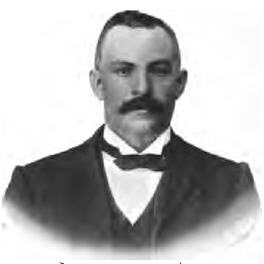Chris Muller facts for kids
Quick facts for kids
Christiaan Hendrik Muller
|
|
|---|---|
 |
|
| Born |
Christiaan Hendrik Muller
4 January 1865 |
| Died | January 14, 1945 (aged 80) |
| Nationality | South African |
| Occupation | Boer General, commander of the Boer forces in the Eastern Transvaal, bank director, member of parliament |
| Predecessor | Ben Viljoen |
| Parent(s) | Helgard Muller (Mossel Bay, 1849-1918) and Anna Debora Pienaar (Potchefstroom, 1860-Potchefstroom, 1890) |
Christiaan Hendrik Muller (born January 4, 1865 – died January 14, 1945) was an important Boer general during the Anglo-Boer War (1899-1902). He was also known as Chris or "Ou Raaltjie." He became the main leader of the Boer forces in the Eastern Transvaal after General Ben Viljoen was captured by British soldiers in 1902.
Contents
Who Was Christiaan Muller?
Early Life and War Hero
Christiaan Muller was born in the Cape Colony, South Africa. He grew up in the Orange Free State and later in Transvaal. Before the big war, he fought in military actions against local groups.
When the Anglo-Boer War (1899-1902) began, Muller started as a corporal. This is a lower rank in the army. But because he was very skilled with weapons, he quickly became a general.
Famous Battles and Victories
General Muller and General Ben Viljoen led the Boers in the Battle of Helvetia. This battle happened on December 29, 1900. They surprised the British forces by attacking at night.
The Boers had about 580 men. The British had about 350 men, but they had a very large naval cannon. Muller's forces won and captured 235 British soldiers. They also captured the big cannon, which they jokingly called the 'Lady Roberts'.
Muller became famous for taking this cannon. On June 12, 1901, Muller and his troops won another battle. They defeated about 350 Australian soldiers at Wilmansrust, Transvaal. They took important supplies like ammunition, guns, clothes, and food. The Boers really needed these items.
After the War
After the Anglo-Boer War ended, Muller helped with the peace talks. These talks led to the Treaty of Vereeniging in 1902. This treaty officially ended the war.
After the war, Muller became a director at the South African Landbank. This bank was started in 1912. In 1914, he was involved in the Maritz Rebellion, a short uprising. He also served as a member of the Parliament of South Africa for several years.
Christiaan Muller passed away in 1945 in Johannesburg.
 | Toni Morrison |
 | Barack Obama |
 | Martin Luther King Jr. |
 | Ralph Bunche |

